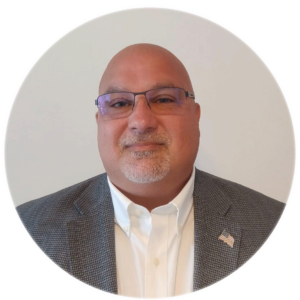Imagine this scenario: You’re a healthcare administrator who notices repeated referrals to a specific supplier for medical equipment, despite the availability of equally qualified providers. A closer look reveals unusually close relationships between the supplier and some prescribing physicians. What if this isn’t just business as usual? Could you be witnessing the signs of a kickback scheme?
This article will help you understand common types of healthcare kickbacks, how to recognize red flags, and how to report healthcare fraud efficiently. From shady referral incentives to sham consulting agreements, these illegal practices undermine patient trust and inflate costs. Learn how to safeguard your organization and the healthcare industry.
What Are Kickbacks and Why Are They Harmful?
Kickbacks in healthcare involve financial incentives exchanged for referrals or recommendations of specific products or services covered by federal healthcare programs. These schemes may seem low-profile, but have serious consequences.
Kickbacks inflate healthcare costs, steer patient care away from what’s medically necessary, and violate the law. They also put professionals at risk of legal penalties and undermine the integrity of the healthcare system.
Whether it’s direct cash payments, lavish gifts, or disguised consulting fees, kickback arrangements distort medical decision-making. They unfairly benefit providers and vendors, while draining taxpayer-funded programs like Medicare. The good news? Awareness is key, and taking appropriate steps ensures these harmful practices can’t thrive on your watch.
5 Common Types of Kickback Schemes
Kickbacks remain one of the leading forms of healthcare fraud. Here are five common kickback schemes and how they operate:
1. Cash Payments
Under-the-table cash payments for high-value referrals remain a classic form of kickbacks, despite strict legal prohibitions. These payments are difficult to trace and often disguised through deceitful accounting.
2. Excessive Gifts or Free Services
Luxurious trips, high-value gifts, or offers of free equipment and event sponsorships are often misrepresented as harmless goodwill gestures. These excessive gifts are, in reality, a way to influence medical decisions.
3. Sham Consulting Fees
Some providers are offered consultant contracts with little to no actual work being performed. These agreements are designed purely to funnel money to the healthcare professional in exchange for their influence.
4. Referral Incentives
Schemes where healthcare providers receive financial benefits, such as bonuses or discounts, for steering patients to specific hospitals, labs, or other facilities.
5. Inflated Service Charges
Vendors might charge excessive fees for everyday services, then share a portion of the profits with the referring providers, effectively rewarding them for driving up unnecessary costs.
Identifying these practices as fraud is critical. They aren’t just unethical, but a violation of federal laws.
The Laws That Prohibit Healthcare Fraud Kickbacks
Anti-Kickback Statute
The Anti-Kickback Statute (AKS) is a federal law that prohibits payments or “remuneration” in exchange for referrals of services covered by federal healthcare programs. Remuneration can take many forms, including payments, gifts, or discounts. Violations may result in hefty fines, exclusion from federal programs, and even criminal charges.
Stark Law
The Stark Law, formally known as the Physician Self-Referral Law, prohibits physicians from referring patients to facilities where they (or their family members) have a financial interest, unless an expansive set of legal exceptions is met. This law aims to prevent conflicts of interest while maintaining patient trust and fairness in medical practices.
The enforcement of these laws is a top priority for the government, and the costs of non-compliance are steep. For example, in 2024 alone, $2.9 billion was recovered through False Claims Act cases, showcasing the importance of vigilant healthcare fraud reporting. These laws ensure that medical decisions are based on patient needs, not financial incentives.
How to Spot Kickback Schemes
Spotting kickbacks is not always straightforward, but there are clear warning signs that healthcare professionals should watch for:
- Suspicious Vendor Relationships. If a vendor is unusually engaged with one specific provider and offers repeated “freebies” or discounts, it could indicate an unethical arrangement.
- Irregular Billing Practices. Pay attention to inflated fees or charges for services that don’t add up. A sharp rise in referrals, orders for unnecessary procedures, or instructions to bill for services not rendered, should raise concerns.
- Unexplained Wealth. If a colleague suddenly experiences unexplained financial gains aligned with specific referral patterns, it may be worth investigating further.
How to Report Healthcare Fraud
Once you suspect fraud, reporting it is easier than you think. Follow these three simple steps to take a stand:
1. Document Your Observations
Maintain a record of any evidence, such as emails, contracts, or financial transactions, that suggest unethical practices. Clear and detailed documentation strengthens your case and helps attorneys and investigators understand the issue.
2. Consult a Whistleblower Attorney
Working with a healthcare fraud attorney is vital to ensure your claims are correctly filed. They can explain your rights under whistleblower law and guide you through the process of how to report healthcare fraud confidentially.
3. File a Claim with Your Whistleblower Attorney’s Assistance
Your whistleblower attorney will help you prepare and file your claim with the appropriate government agencies. This step is critical for ensuring the evidence you provide is taken seriously and processed correctly, maximizing your chances of a successful case.
By reporting, you not only help end illegal practices, but could also be entitled to significant financial rewards for your information. Successful whistleblowers may receive up to 30% of the funds recovered by the government in False Claims Act investigations.
Speak Up to Protect Integrity
Kickback schemes erode the foundations of healthcare by prioritizing profits over patient well-being. By recognizing and reporting suspicious activities, healthcare professionals play a critical role in upholding fairness, reducing waste, and protecting taxpayer dollars.
As a contingency law firm, we don’t get paid unless we win your case. Our team of healthcare fraud attorneys will stop at nothing to ensure your case is handled with care to maximize your potential to earn a financial reward. If your information leads to a successful case, you could earn up to 30% of any funds recovered by the government.
Learn how to report healthcare fraud by requesting a no obligation, confidential case review to discuss your concerns. Together, we can make a difference.

authored by Christopher J. Piacentile
Director of Investigations DJO Whistleblower Law Group


